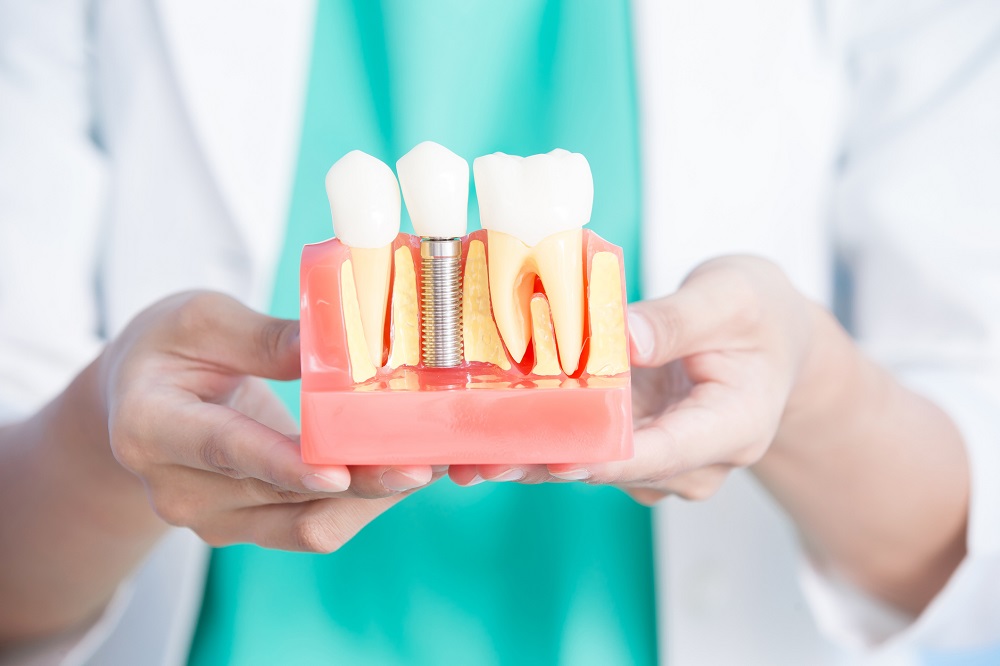 According to the American College of Prosthodontists, “it is estimated that 178 million Americans are missing at least one tooth and about 40 million Americans are missing all of their teeth.” Tooth loss in adults is often the result of tooth decay, injury or periodontal disease.
According to the American College of Prosthodontists, “it is estimated that 178 million Americans are missing at least one tooth and about 40 million Americans are missing all of their teeth.” Tooth loss in adults is often the result of tooth decay, injury or periodontal disease.
There are several devices utilized by dentists to replace missing teeth; however, one of the most natural feeling and looking is a dental implant. Dental implants are metal frames or posts that are surgically placed in the jawbone. They serve as roots for missing teeth and support permanent tooth prosthetics such as crowns that are custom made to match your teeth. Dental implants are often a safe and permanent solution.
Although dental implants are a favorable choice for many, implant surgery may not be for everyone. Depending on the status of their health, patients with certain conditions such as diabetes, cardiac problems, unhealthy gums or those with significant bone loss of the jaw may not be suitable candidates for this procedure.
As with any surgical procedure, there are risks associated with dental implant surgery. Risks are rare but may include:
- Infection at the implant site
- Dental implants protruding into sinus cavities causing sinus problems
- Damage to other teeth or blood vessels
- Nerve damage at the implant site
The procedure is typically performed in an outpatient setting by a highly trained dental specialist. Your dentist will most likely prescribe medications or antibiotics to help relieve pain and reduce the risk of infection post-surgery. After the procedure, it is highly recommended that you practice excellent oral hygiene, avoid habits that may damage teeth such as chewing on ice and keep up with routine checkups.
To schedule an appointment with a dentist at Flushing Hospital, please call 718-670-5521.
All content of this newsletter is intended for general information purposes only and is not intended or implied to be a substitute for professional medical advice, diagnosis or treatment. Please consult a medical professional before adopting any of the suggestions on this page. You must never disregard professional medical advice or delay seeking medical treatment based upon any content of this newsletter. PROMPTLY CONSULT YOUR PHYSICIAN OR CALL 911 IF YOU BELIEVE YOU HAVE A MEDICAL EMERGENCY.
